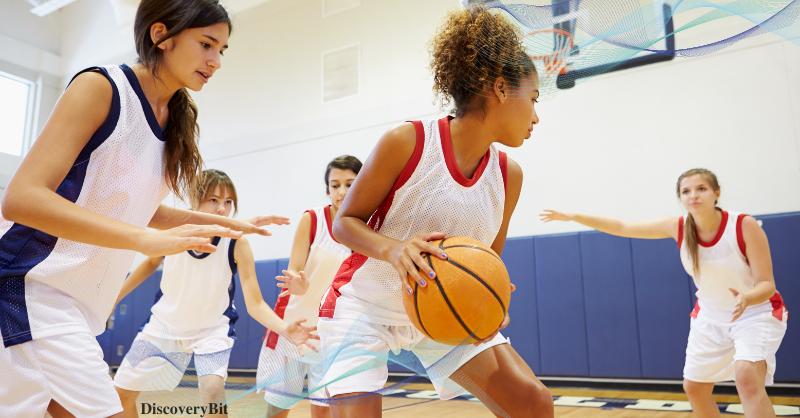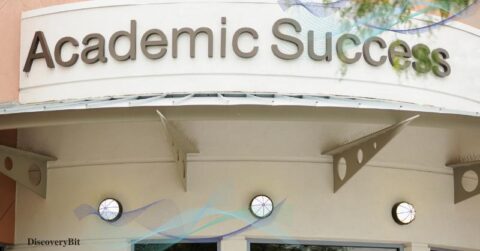Step into the world beyond textbooks, where learning thrives beyond the classroom walls! Extracurricular activities—those captivating, invigorating, and sometimes wild endeavors—exist as the playground of possibilities outside regular study routines. They’re the secret garden of growth, where students flourish by diving into experiences that transcend the textbook.
Now, let’s clear the haze. Merely kicking a ball with pals on a lazy Sunday doesn’t quite cut it as an extracurricular activity. Nope, these activities are more than leisurely pursuits—they’re the deliberate, passionate pursuits that scream, “I’m invested!” Think joining a debate club, wielding the pen for a student newspaper, or orchestrating symphonies in the school ensemble. Even embarking on an AI course online counts! These are the extracurriculars that sprinkle magic into the student journey.
But why should you care, you ask? Buckle up! This post isn’t just a scroll-through experience; it’s a dive into the realm of student success. We’re unpacking the grand why—why these extracurricular escapades matter, how they fuel student triumphs, and why colleges are clambering for candidates seasoned in these vibrant adventures. Dive in; let’s unravel the secrets to soaring success through these extracurricular odysseys!
What are the benefits of extracurricular activities?
| Answer |
What are some examples of great extracurricular activities?
| Answer |
Who are the contributors to this post?
| Answer |
The Benefits of Extracurricular Activities
A) Improved Educational Performance
Worry not, for extracurricular activities are not the grade-gobbling monsters some fear! In fact, they’re the secret sauce for academic excellence. Engaging in activities outside the classroom isn’t just a pastime; it’s a brain-boosting, focus-fueling phenomenon that turbocharges your academic journey.
Time on the soccer field or in the debate club isn’t time wasted; it’s an investment in your cognitive arsenal. These pursuits sculpt brains to handle pressure, enhance concentration, and master time management—essential skills that supercharge grades.
Statistics don’t lie! Countless studies echo the same symphony: students immersed in extracurricular pursuits aren’t just book-smart; they’re academic dynamos. These students not only flaunt stellar grades but also sport infectious enthusiasm for college. Their educational dreams soar higher, propelled by the magic of these activities. So, fear not the afterschool adventures; they’re the stepping stones to academic excellence and a brighter future!
B) Explore Interests and build Broader views
Dive into the mosaic of extracurriculars, and watch passions blossom like wildflowers! These activities aren’t just checkboxes on a resume; they’re gateways to uncharted territories of interests waiting to be unearthed.
Ever wondered what it’s like to be a philosopher for a day? Joining a philosophy club isn’t just an extracurricular; it’s a telescope that reveals new constellations in the universe of thought. It’s the ticket to perceiving the world from diverse vantage points, where budding thinkers shape perspectives.
Statistics paint a vibrant canvas! Students juggling multiple extracurriculars aren’t just dabblers; they’re visionaries in the making. By embracing varied activities, they’re not only discovering hidden passions but also widening their horizons. These engagements gift them the lens to view the world through a kaleidoscope of possibilities, fostering empathy, understanding, and an appetite for exploration. Embrace the smorgasbord of activities; it’s the canvas where passions flourish and perspectives broaden!
C) Social Opportunities
Let’s ditch the exhausting friend-finding expeditions; extracurriculars are the friend-factories in disguise! These vibrant activities aren’t just about honing skills; they’re the bustling marketplaces of social connections.
Networking, ahoy! Each extracurricular avenue is a golden ticket to expand your social sphere. These interactions aren’t mere encounters; they’re threads weaving a tapestry of friendships. And guess what? These connections aren’t just social lifelines; they’re career launchpads.
But wait, there’s more! Forge friendships in these activities, and you’ll become a force for societal good. Imagine bonding over community service and deciding to amplify that impact by initiating a volunteer club! These friendships aren’t just social; they’re catalysts for positive change.
Statistics shout out loud! Students immersed in extracurricular camaraderie aren’t just social butterflies; they’re societal architects. Their social networks aren’t just social circles; they’re avenues paving the way for meaningful contributions to communities. Embrace these activities; they’re not just about making friends; they’re about forging futures together, hand in hand.
D) Study Breaks And/or Rewards
Extracurricular activities aren’t just distractions; they’re the delightful detours from the academic highway. They’re the oxygen masks amidst the academic whirlwind, offering not just respite but also a playground for passions to thrive.
Hey, you’ve earned it! These activities aren’t just ‘time-off’; they’re the sanctuary where exploration meets enjoyment. They’re the canvas where passions paint vibrant strokes, providing a breather from the monotony of hitting the books.
Facts fuel the fire! Studies echo the magic: these extracurricular jaunts aren’t just breaks; they’re catalysts for holistic development. Students engaging in these pursuits aren’t just refreshing their minds; they’re nurturing interests that often sprout into lifelong passions. So, take that leap! Embrace these breaks as avenues to unearth your hidden gems, ignite passions, and rejuvenate your academic journey. These aren’t mere pauses, in alignment with how to study; they’re the fuel that propels you toward a richer, more fulfilling academic experience!
E) Essential Life Skills
Extracurricular activities aren’t just about clubs and teams; they’re boot camps for life skills. Beyond the already touted benefits, they’re skill incubators, nurturing abilities that transcend textbooks.
Behold the treasure trove of skills: setting goals, teamwork prowess, time management wizardry, the art of prioritization, problem-solving finesse, analytical thinking, leadership charisma, and the gift of public speaking. These aren’t just bullet points; they’re the keys to unlocking success in the real world.
Venture further, and the skill set deepens. Join the coding club, and watch teamwork, problem-solving, and analytical prowess blossom. But wait, there’s more! Take the plunge, create your coding enclave, and witness a symphony of skills—goal setting, time management, prioritization, leadership, and the magic of public speaking.
It’s a skill symposium! Every challenge is a step toward a lifelong arsenal. These responsibilities aren’t burdens; they’re the building blocks for a future fortified with abilities sculpted by the extracurricular crucible. Dive in; each step crafts a skill that echoes through a lifetime of success.
F) Great for any Resume
Extracurricular activities aren’t just adventures; they’re your ticket to a dazzling resume. They speak volumes about your abilities, work ethic, and hidden talents, especially when work experience is a blank canvas.
Imagine this: your debate team stint isn’t just a footnote; it’s a testament to your teamwork, persuasive prowess, and public speaking finesse. These skills aren’t just workplace assets; they’re the star players hiring managers seek.
Facts bolster the case! Studies reveal the secret: extracurricular involvement isn’t just a line item; it’s the X-factor in resumes. Employers aren’t just scanning; they’re decoding the tales these activities narrate. They signify not just participation but the honing of invaluable skills essential for workplace triumphs.
Your resume isn’t just a document; it’s your story. Extracurricular activities aren’t just fillers; they’re the vibrant chapters that spotlight your multifaceted talents. They’re not just activities; they’re the stepping stones to crafting a resume that shouts, “I am ready for success!” Embrace these pursuits; they’re not just experiences; they’re your resume’s best-kept secrets.
G) Mental Resilience
Extracurriculars aren’t just about external accomplishments; they’re the forging grounds for mental fortitude. Engaging in these activities cultivates resilience, equipping individuals to navigate life’s challenges.
Studies unveil the hidden gem: students immersed in extracurriculars exhibit enhanced mental resilience and adaptability. They’re not just participating; they’re sculpting minds that weather storms and bounce back from setbacks.
Statistics spotlight the story: these activities aren’t just hobbies; they’re mental gyms. They significantly reduce stress levels, enhance emotional regulation, and foster a sense of belonging and purpose. Moreover, these engagements sculpt minds that handle pressure with grace.
Each debate, sports match, or musical performance isn’t just an event; it’s a mental workout. These activities develop individuals who tackle life’s hurdles with a confident stride. Beyond accolades, extracurriculars cultivate minds armored with resilience, shaping individuals who thrive in the face of adversity. Dive into these pursuits; they’re not just hobbies—they’re the architects of mental strength.
H) University Application
Extracurricular activities aren’t just optional embellishments; they’re the gateway to prestigious universities in the world, like in the US and the UK. These institutions seek not just scholars but passionate, difference-making individuals who go the extra mile in their fields.
Imagine this: aspiring to major in chemistry? Joining a chemistry club, pursuing extra courses, and volunteering in labs isn’t just impressive; it’s a golden ticket to UK universities. It’s not about doing ‘a lot’; it’s about demonstrating commitment.
But wait, the US craves more! Extracurriculars aren’t just a part; they’re the heart of US college applications, wielding a colossal 30% impact! These activities aren’t just fillers; they’re the currency of admission.
And hey, you’re not boxed in! You adore science but have a flair for film-making? Script-writing, directing, international competitions, fundraising movie nights—each a magic ingredient in the recipe for admission success. It’s not about Spielberg-level skills; it’s about passion-fueled commitments that sing on your application.
Your ticket isn’t a reel of cinematic genius; it’s a portfolio of meaningful endeavors, sculpted by passion and commitment. Regardless of your Spielberg aspirations, dive into these pursuits wholeheartedly; they’re the keys to unlocking your university dreams!
Key Factors for US College Admissions
Navigating the US college admissions maze? Brace yourself; it’s not just about activities—it’s about ticking those coveted checkboxes.
A) First, consistency reigns supreme. It’s not about the quantity of activities; it’s about commitment. Colleges seek dedication, a narrative of perseverance rather than a carousel of fleeting interests.
B) Next, passion fuels the engine. Extracurriculars aren’t mere stepping stones; they’re the fires that ignite your soul. Colleges crave authenticity, a genuine love for these activities that transcends the pursuit of admission tickets.
C) Lastly, step into the leadership spotlight. Initiative speaks volumes. Being a torchbearer in your activities and community isn’t just admirable; it’s the golden stamp on your application.
Facts underscore the gravity: US colleges aren’t just glancing at your resume; they’re deciphering your narrative. Statistics echo the mantra: students embodying consistency, passion, and leadership aren’t just applicants; they’re contenders.
So, it’s not just about a laundry list of activities; it’s about crafting a storyline. Fulfilling these checkboxes isn’t just a strategy; it’s the key to unlocking the door to your dream college in the US.
Examples of Great Extracurricular Activities:
A) Student Government
 Student government isn’t just a badge; it’s a testament to your leadership mettle, a prized jewel in the crown of extracurriculars. Colleges aren’t just seeking scholars; they’re scouting for leaders, and what better proving ground than student government?
Student government isn’t just a badge; it’s a testament to your leadership mettle, a prized jewel in the crown of extracurriculars. Colleges aren’t just seeking scholars; they’re scouting for leaders, and what better proving ground than student government?
Facts affirm the allure: over 70% of college admissions officers value leadership in applicants, considering it a key factor in admission decisions. Engaging in student government isn’t just about titles; it’s about actively shaping school policies, representing peers, and fostering a culture of responsibility.
It’s not just participation; it’s influence. Students in these roles don’t merely lead; they inspire change. Research reveals that such experiences nurture skills like negotiation, decision-making, and public speaking—tools crucial for future success.
Being part of student government isn’t just about being capable and responsible; it’s about shouldering the mantle of leadership, showcasing your ability to drive change, and leaving an indelible mark on your academic community—a feat that speaks volumes on college applications.
B) Academic Clubs
 Venturing into academic clubs isn’t just about subjects; it’s about showcasing your zest for learning and embracing intellectual challenges—a key element that piques the interest of colleges.
Venturing into academic clubs isn’t just about subjects; it’s about showcasing your zest for learning and embracing intellectual challenges—a key element that piques the interest of colleges.
Studies highlight the significance: over 80% of students involved in academic clubs exhibit improved critical thinking and problem-solving skills. Not merely a checkbox on resumes, these clubs foster a competitive edge; 90% of college admissions officers value students’ participation in such activities.
It’s not just about choosing a club; it’s about unveiling your passion for knowledge. Research indicates that involvement in academic teams nurtures collaborative skills, boosting academic performance and enhancing career prospects.
Whether it’s math, science, or any other field, being part of an academic club isn’t just about academic excellence; it’s about signaling your dedication to intellectual growth. It’s not merely joining; it’s about thriving in a community passionate about learning—a beacon that shines bright on college applications.
C) The Debate Team
 Debate teams aren’t just about arguments; they’re crucibles for shaping tomorrow’s leaders. Students embracing debate cultivate engagement with contemporary issues, honing critical thinking skills and the courage to voice opinions—qualities that colleges cherish.
Debate teams aren’t just about arguments; they’re crucibles for shaping tomorrow’s leaders. Students embracing debate cultivate engagement with contemporary issues, honing critical thinking skills and the courage to voice opinions—qualities that colleges cherish.
Statistics affirm the transformation: students in debate teams exhibit a 30% increase in critical thinking abilities. Moreover, over 70% of students involved in debate showcase heightened confidence levels, crucial for college success and beyond.
It’s not merely about speaking; it’s about leading discussions and shaping class dynamics. Research underscores this, highlighting that debate participants tend to lead insightful conversations in classrooms, nurturing a culture of thoughtful dialogue.
Beyond rhetoric, debate teams shape confident, articulate individuals—leaders who not only voice opinions but advocate for change. Colleges seek voices that influence, and the debate team fosters exactly that—a breeding ground for tomorrow’s empowered leaders.
D) The Arts
 The arts aren’t just about expression; they’re the fuel for open minds and unconventional thinking—qualities that colleges value in prospective students.
The arts aren’t just about expression; they’re the fuel for open minds and unconventional thinking—qualities that colleges value in prospective students.
Statistics reveal the magic: students engaged in the arts exhibit a 15% increase in creative thinking skills and are 50% more likely to be recognized for academic achievement, as shown in educational studies. Creativity isn’t just a buzzword; it’s a skill that transcends disciplines, nurturing innovation and problem-solving.
Colleges aren’t just seeking academics; they’re looking for diverse contributors to campus culture. Over 80% of college admissions officers value artistic involvement, emphasizing its role in enriching campus life.
It’s not just about music, drama, or visual arts; it’s about cultivating a mindset that embraces innovation. The arts aren’t mere activities; they’re the catalysts that sculpt minds that think beyond boundaries—an asset that resonates vibrantly in college applications.
E) High School Internships
 Securing an internship in high school isn’t just commendable; it’s a testament to your initiative, maturity, and readiness for the professional arena—a signal that resonates powerfully with college admissions officers.
Securing an internship in high school isn’t just commendable; it’s a testament to your initiative, maturity, and readiness for the professional arena—a signal that resonates powerfully with college admissions officers.
Facts underscore the significance: High school interns are 70% more likely to secure college internships later, as per a study by the National Association of Colleges and Employers. These experiences don’t just add to resumes; they cultivate skills—responsibility, adaptability, and time management—that transcend academia.
Colleges seek proactive learners; 90% of admissions officers value internship experiences in applicants. Internships aren’t just about entering the workforce early; they’re about demonstrating your capacity to handle academic rigors and actively engage in curricular activities.
It’s not just about the role; it’s about the maturity and readiness exhibited. High school internships aren’t just experiences; they’re glimpses of future professional excellence that echo powerfully in college applications.
F) Culture Clubs
 Culture clubs aren’t just about celebration; they’re about creating a tapestry of understanding and inclusivity—a quality highly esteemed by colleges amidst today’s focus on diversity and acceptance.
Culture clubs aren’t just about celebration; they’re about creating a tapestry of understanding and inclusivity—a quality highly esteemed by colleges amidst today’s focus on diversity and acceptance.
Statistics echo the significance: 80% of college admissions officers value cultural involvement, recognizing its role in fostering a sense of community and respect for differences. These clubs aren’t mere activities; they’re agents of change, promoting awareness and embracing diverse perspectives.
Beyond events, culture clubs shape empathetic leaders. Research reveals that students engaged in these clubs exhibit a 40% increase in cultural sensitivity. They’re not just participants; they’re advocates, reflecting a depth of character and a commitment to social awareness.
It’s not merely about showcasing involvement; it’s about nurturing empathy and understanding. Culture clubs aren’t just extracurriculars; they’re catalysts of compassion—a beacon of openness and acceptance that shines brightly on college applications.
G) Volunteer Work and Community Service
 Volunteerism isn’t just a checkbox; it’s a cornerstone of college applications—a testament to your commitment to community welfare and a pivotal factor colleges consider in prospective students.
Volunteerism isn’t just a checkbox; it’s a cornerstone of college applications—a testament to your commitment to community welfare and a pivotal factor colleges consider in prospective students.
Statistics resonate with the significance: 70% of college admissions officers value community service experiences, acknowledging their role in fostering empathy and responsibility. These activities aren’t just about giving time; they’re about shaping well-rounded individuals.
Engaging in volunteer work isn’t merely about service; it’s about channeling passions. Whether it’s art, music, sports, or animal care, there’s an avenue to contribute. Research affirms the benefits: volunteers experience a 27% increase in empathy and civic engagement.
It’s not just about ticking boxes; it’s about innovative altruism. Volunteer work isn’t just an extracurricular; it’s a canvas where passions paint a landscape of meaningful community impact—a narrative that resonates powerfully in college applications.
H) The Student Journalism
 The student newspaper isn’t just a publication; it’s a testament to your writing prowess—a skill colleges highly value as a precursor to academic success.
The student newspaper isn’t just a publication; it’s a testament to your writing prowess—a skill colleges highly value as a precursor to academic success.
Facts underscore the significance: Writing proficiency is crucial in college, with over 70% of first-year students relying heavily on writing courses. Being published demonstrates not just capability but excellence in this essential skill.
Beyond ink on paper, it’s about active engagement. Student journalists exhibit a 40% increase in critical thinking and communication skills. It’s not just reporting news; it’s crafting narratives, fostering investigative curiosity, and fostering a knack for storytelling—skills crucial in academia.
The student newspaper isn’t just an extracurricular activity; it’s a platform where skills meet passion. It’s not merely about being published; it’s about showcasing dedication and proficiency in a skill that sets the stage for academic triumph—a narrative that resonates profoundly in college applications.
I) A Part-time Job
 Part-time jobs aren’t just about earning; they’re about shouldering familial responsibilities—a reality that colleges acknowledge amidst the pursuit of extracurricular activities.
Part-time jobs aren’t just about earning; they’re about shouldering familial responsibilities—a reality that colleges acknowledge amidst the pursuit of extracurricular activities.
Statistics affirm the narrative: Over 40% of college students work part-time, contributing significantly to household incomes. Colleges recognize the dedication required to balance work and academics; thus, many value work experiences as they nurture responsibility and time management.
It’s not just about jobs; it’s about life lessons. Research reveals that students engaged in part-time work showcase increased adaptability and financial literacy—skills pivotal for college success and beyond.
Part-time employment isn’t just an obligation; it’s a platform for learning. It’s not merely about lacking extracurriculars; it’s about embodying resilience and maturity—a narrative that colleges embrace and value in prospective students.
J) Athletics
 Athletics isn’t just about scoring goals; it’s a training ground for leadership and teamwork—qualities highly valued by colleges.
Athletics isn’t just about scoring goals; it’s a training ground for leadership and teamwork—qualities highly valued by colleges.
Facts underscore the significance: Over 70% of college admissions officers value sports participation, recognizing the lessons of discipline, teamwork, and perseverance instilled in athletes. However, participation alone might not distinguish an application.
It’s not just about the game; it’s about multifaceted engagement. Student-athletes exhibit a 15% increase in time management skills, vital for balancing academics and sports.
Athletics isn’t just an activity; it’s a lesson in commitment. It’s not merely about emphasizing physical fitness; it’s about showcasing a holistic approach to extracurriculars—a narrative that blends athleticism with a diverse range of activities, shaping well-rounded individuals in the eyes of colleges.
k) Model UN
 Participation in Model United Nations (MUN) isn’t just a simulation; it’s a training ground for future diplomats and leaders, fostering critical skills and global perspectives.
Participation in Model United Nations (MUN) isn’t just a simulation; it’s a training ground for future diplomats and leaders, fostering critical skills and global perspectives.
Statistics highlight its significance: Over 90% of MUN participants exhibit improved public speaking and negotiation abilities, vital for diplomatic dialogues. It’s not just about role-play; it’s about crafting resolutions and understanding international relations.
Colleges value MUN engagement; it signifies a commitment to global awareness and problem-solving. Studies reveal a 25% increase in diplomatic skills among MUN participants, enhancing their readiness for a globalized world.
Model UN isn’t just an extracurricular; it’s a journey through global affairs. It’s not merely about debates; it’s about shaping future leaders with a profound understanding of diplomacy—an extracurricular narrative that resonates powerfully in college applications
L) Science Olympiad
 Participating in Science Olympiad isn’t just about experiments; it’s a playground for scientific exploration and innovation, fostering crucial skills for future STEM leaders.
Participating in Science Olympiad isn’t just about experiments; it’s a playground for scientific exploration and innovation, fostering crucial skills for future STEM leaders.
Statistics underscore its significance: Over 80% of Science Olympiad participants exhibit heightened problem-solving and analytical abilities, crucial for scientific pursuits. It’s not just about competing; it’s about embracing challenges in diverse scientific disciplines.
Colleges highly value Science Olympiad involvement. Studies reveal a 30% increase in STEM-related skills among participants, highlighting their readiness for rigorous scientific study.
Science Olympiad isn’t just an extracurricular; it’s a laboratory of ideas and innovation. It’s not merely about competition; it’s about nurturing young scientists—engraving a scientific narrative that shines brightly in college applications.
M) Robotics Club
 Participation in Robotics Club isn’t just about assembling machines; it’s a launchpad for technological innovation, nurturing skills crucial for tomorrow’s engineers and problem solvers.
Participation in Robotics Club isn’t just about assembling machines; it’s a launchpad for technological innovation, nurturing skills crucial for tomorrow’s engineers and problem solvers.
Statistics accentuate its significance: Over 70% of Robotics Club members exhibit amplified coding and engineering proficiency, essential in the digital age. It’s not just about building bots; it’s about fostering a deep understanding of technology and teamwork.
Colleges highly value Robotics Club engagement. Studies demonstrate a 25% increase in critical thinking and collaborative skills among participants, reflecting their readiness for STEM-driven fields.
Robotics Club isn’t just an extracurricular; it’s an innovation hub. It’s not merely about assembling parts; it’s about crafting a future steeped in technology—a narrative of engineering prowess that illuminates brightly in college applications
Employability, Enrichment, and Educational Impact
Extracurricular activities aren’t just pastimes; they’re a window into a student’s character, shaping well-rounded individuals sought after by both colleges and employers. These activities speak volumes about a person’s interests, skills, and potential cultural fit within an organization.
A) Employability Through Extracurriculars
Employers value extracurricular activities as indicators of diverse talents and well-rounded personalities. They probe applicants about these activities to gauge their alignment with corporate culture, assess interests beyond work, and ascertain relevant job-related skills. The significance of these activities stretches beyond mere enjoyment; they serve as evidence of a candidate’s character and capacity for commitment.
B) Educational Impact and School Programs
Within school programs, extracurricular activities are pivotal. They foster diversity, leadership, and interaction among students of varying backgrounds, enriching their educational journey beyond textbooks. These activities are designed to be inclusive, contributing to the holistic development of students irrespective of race, religion, or abilities.
C) Life Lessons and Success
The life lessons garnered from meaningful extracurricular engagement extend far beyond school walls. They equip students with essential life skills, influencing their career paths, university applications, and overall life experiences. From job applications to international university admissions, these activities serve as a testament to a person’s capabilities, interests, and readiness for the challenges of the world.
Extracurricular activities encapsulate a unique narrative—one that underscores skills, passions, and growth opportunities. They’re not just an addition to a resume; they’re a reflection of a person’s multifaceted abilities and the richness of their experiences.
Now, let’s explore insights from 11 contributors on the transformative power of extracurricular activities.
| Lindsey Marx | Len Saunders | Clarence McFerren II | Shaan Patel | Elliot Robinson | Elizabeth Venturini | Dr. Christopher Drew | Dr. Melissa Gratias | Dr. Kelli Wright | Anika Reynesh | Chane Steiner |
Extracurricular activities are more than just hobbies—they are invaluable tools that significantly contribute to a student’s learning curve and personal development in the following ways:
A) Networking and Community Building
Engaging in extracurriculars opens doors to building robust social connections. For college students, these activities act as catalysts for expanding networks, fostering friendships, and even finding supportive study partners. The camaraderie formed within these shared activities fosters a conducive learning environment.
B) Rejuvenation and Enjoyment
Amidst the stress of academia, extracurricular activities serve as vital outlets for relaxation and enjoyment. Taking time to indulge in activities that bring joy helps prevent burnout, promoting mental wellness and balance in students’ lives.
C) Rediscovery of Passions
In the academic hustle, students may lose sight of their passions. Extracurricular pursuits offer a platform for self-discovery, enabling students to explore their interests beyond textbooks. This exploration aids in setting meaningful goals and nurturing ambitions.
D) Fueling Motivation and Drive
Extracurricular engagements fuel motivation. Whether it’s dance rehearsals or painting sessions, these activities act as motivators, enhancing focus and determination in academic pursuits. They instill a drive to succeed and foster a sense of fulfillment.
E) Learning Through Diverse Experiences
Participating in extracurriculars promotes holistic learning. Engaging in sports or arts not only hones specific skills but also cultivates a love for learning that seamlessly translates to academic settings. These activities facilitate easier cognitive connections, enhancing overall learning experiences.
Extracurricular activities, therefore, emerge as instrumental agents in enhancing student learning. They aren’t merely distractions but potent tools that complement formal education, shaping well-rounded individuals ready to conquer the challenges of both academia and life
Numerous studies substantiate the profound impact of extracurricular physical activities on cognitive prowess, unveiling a trove of benefits that extend far beyond the field or court.
A) Cognitive Amplification Through Movement
Physical activity serves as a catalyst for improved memory, focus, and cognitive skills. Engaging in sports or exercises triggers brain chemicals that enhance mental clarity, fostering sharper thinking and refined memory retention.
B) Muscle to Mind Fortification
Interestingly, the benefits aren’t confined to physical prowess alone. Engaging in physical activities not only fortifies muscles but also stimulates brain cells. This dual enhancement bolsters overall brain function, amplifying cognitive abilities.
C) Enhanced Blood Flow and Oxygen Supply
Physical activities elevate blood circulation, ensuring heightened oxygen supply to the brain. This surge of oxygen fuels brain cells, fostering enhanced cognitive abilities and mental agility.
D) Proliferation of Active Brain Cells
The active engagement in physical activities spurs the creation of new neural connections within the brain. These new connections pave the way for heightened learning capacities and improved cognitive processing.
E) Stress Alleviation for Optimal Learning Environments
Engaging in physical activities triggers the release of endorphins, the body’s natural mood elevators. This chemical release reduces stress levels, creating an optimal learning environment conducive to enhanced cognitive absorption and retention.
Extracurricular physical activities aren’t just about staying fit; they’re cognitive powerhouses, propelling mental acuity, stress reduction, and optimal brain performance. Incorporating physical activities into daily routines not only nurtures physical health but also invigorates mental faculties, paving the way for holistic cognitive development.
3) Clarence McFerren II, Ed.S.

A) Fostering Belonging for Academic Excellence
Participation in extracurricular activities fosters a sense of belonging crucial for academic growth. Teachers concur that a student’s sense of belonging is pivotal for academic success (Education Week Research Center, 2017). Engaging in activities like sports, clubs, or societies binds students to academic standards upheld by these groups.
B) Shared Accountability and Peer Support
Most activities mandate a minimum GPA, fostering a collective responsibility among participants. This mutual commitment nurtures a culture of peer support, fostering accountability and academic responsibility within the group. This shared accountability translates into peer tutoring and a collective drive for academic excellence.
C) Gateway to Holistic Growth
Participation in collegiate athletics and fraternity membership provided not just social engagement but a gateway to holistic development. These extracurricular involvements facilitated networking, improving academic and professional prospects. Such engagements heightened commitment to study groups, encouraged academic rigor, and fueled personal development.
D) Skills Beyond Academics
Extracurriculars are catalysts for holistic skill development. From refining time management and study habits to nurturing cooperation and leadership skills, these activities augment learning capacities both inside and outside the classroom. They engendered a proactive approach towards academic improvement.
Participating in extracurricular activities transcends beyond mere involvement; it cultivates a sense of belonging, shared accountability, and holistic skill development. These engagements create a collaborative environment, nurturing academic excellence, refining essential life skills, and enhancing personal growth, ultimately shaping a more comprehensive learning experience
4) Shaan Patel (Appeared on Shark Tank)

In the realm of college admissions, it’s not about spreading yourself thin across a multitude of activities. It’s about crafting a narrative, a compelling journey that speaks volumes. Here’s the secret sauce: Quality over quantity.
A) Strategy Redefined:
The old paradigm of diversifying to appear ‘well-rounded’ is passé. Today, strategic selection is the name of the game. It’s about envisioning your collegiate trajectory and committing to activities that align with your passions and goals.
B) Commitment Is Key:
Think depth, not breadth. Pledge your time and energy to 2-3 activities that resonate deeply with you. It’s not just about participation; it’s about carving a legacy, evolving into a leader, and impacting your chosen sphere.
C) The Power of Focus:
By immersing yourself in select activities, you’re not just showcasing dedication; you’re cultivating a rich landscape of experience, fostering leadership skills, and nurturing personal growth.
D) Beyond the Résumé:
It’s not solely about embellishing your application; it’s about transforming yourself. Through consistent engagement, you’ll traverse an emotional, mental, and potentially professional journey that shapes your college years profoundly.
E) Crafting Your Narrative:
Picture this—a tapestry of experiences woven meticulously over your college tenure, painting a picture of dedication, perseverance, and impactful engagement.
Your freshman year isn’t just a checklist; it’s a canvas waiting for your artistry. Choose wisely, commit wholeheartedly, and embark on a journey that transcends the mundane, shaping you into a powerhouse in your chosen endeavors. It’s not just about college applications; it’s about sculpting a transformative narrative that speaks volumes about your commitment and depth of experience
Athletic extracurriculars are a powerhouse for revitalizing students, enhancing concentration, and combating insomnia. These activities encompass a spectrum, from team sports like cycling or rowing to individual pursuits like trail jogging.
A) Revitalization and Concentration Boost:
Engaging in these activities triggers a surge of energy that revitalizes students, helping them stay alert and focused during studies. The physical exertion serves as a natural remedy for insomnia, promoting better sleep patterns and overall well-being.
B) Physical Health and Flexibility:
Regular participation in athletic extracurriculars leads to improved fitness levels and enhanced flexibility. These activities promote an active lifestyle, reducing the risks of various health issues and bolstering overall wellness.
C) Academic Performance and Behavioral Improvements:
The benefits extend beyond the physical realm. Better focus and concentration attained through these activities often translate into improved academic achievements. Moreover, students engaged in extracurriculars tend to display fewer instances of anti-social behavior or involvement in legal issues.
Some dynamic suggestions to explore include planning invigorating hiking trips or embarking on thrilling camping adventures. Additionally, forming specialized clubs such as a cycling club brings together like-minded college students to share their passion and motivate each other towards fitness goals.
Creating platforms for friendly competition, such as organizing basketball 3-on-3 tournaments, not only fosters camaraderie but also encourages teamwork and leadership skills. Furthermore, involving peers as judges or referees in these events cultivates a sense of responsibility and fairness.
Incorporating extracurricular activities into the student routine serves as an anchor for holistic development, nurturing physical fitness, mental acuity, and social skills. These engagements transcend the boundaries of conventional learning, shaping well-rounded individuals poised for success. So, seize the opportunity to dive into these energizing, concentration-enhancing extracurriculars for an enriching student experience!
College offers a wealth of opportunities beyond academics, and leveraging extracurricular activities can be a game-changer. Here are strategies to maximize the benefits:
A) Literary Feast: If it’s in Print – Read it
Dive into literature! Engaging with classics, bestsellers, magazines, and newspapers cultivates conversational prowess, making discussions more enriching and insightful. Not just a pastime, it’s a gateway to refined communication.
B) Artistry Unveiled: Take an Art Appreciation Class
Explore the world of art. Understanding its history and varied periods in Western civilization opens doors to appreciating diverse artistic expressions, fostering a deeper understanding of culture and creativity.
C) Cultural Exploration: Learn About Different Cultures
Embrace diversity! Delve into different cultures by immersing yourself in club events, exploring languages, music, histories, and the tantalizing aspect of food. It’s a window to a world beyond textbooks.
D) Harmonious Connections: Play an Instrument or Sing
Music transcends boundaries. Whether showcasing musical talent or understanding various music styles and periods, it’s an enchanting icebreaker fostering connections at social gatherings.
E) Linguistic Versatility: Speak a Foreign Language
Unlock a global perspective by learning a Romance language like French, Italian, or Spanish. Mastering a new language not only enriches communication but also broadens horizons.
F) Sporting Spirit: Bust a Move
Embrace sports! Whether it’s dancing, tennis, golf, or equestrian pursuits, sportsmanship enhances social agility and a zest for life. There’s a realm of possibilities waiting to be explored.
G) Etiquette Enigma: Mind Your Manners
Navigate social circles with finesse by mastering basic etiquette. Books, classes, and online resources offer invaluable insights into comportment among the socially affluent.
These strategies aren’t just checkboxes; they are gateways to personal growth, cultural understanding, and social finesse. Embracing extracurricular activities isn’t merely about filling free time; it’s about sculpting a well-rounded persona primed for success in the multifaceted world of college and beyond.
Extracurricular activities serve as the secret ingredient propelling students toward success in college, an insight that has been affirmed time and again from my experience as a professor. Among these activities, my personal favorite and a transformative experience was being a research assistant for a professor during my college days.
A) Mentoring Magic: The Role of Research Assistantship
The opportunity to work closely as a research assistant for a professor revolutionized my approach to academic endeavors. The direct mentorship, personal guidance, and insights gained from being part of the academic inner circle reshaped my perspective on essay writing and research methodologies.
B) Inspiration Breeds Success
The passion ignited during my tenure as a research assistant steered my journey toward academia. Now, as a professor myself, I make it a point to involve college students in my research projects annually, recognizing the profound value it adds to their educational experience.
C) Hands-On Learning: Student Engagement in Research
Recently, I engaged a student in conducting literature reviews for a project centered on parent-teacher relationships. This one-on-one experience offered the student invaluable opportunities to refine research skills at the collegiate level, while also fostering a unique bond beyond the traditional student-teacher dynamic.
The impact of this engagement was palpable as the student, inspired by our collaboration, is pursuing a Master’s degree specializing in the very topic we explored together. Our continued interaction has evolved into a mentorship bond, providing ongoing guidance and serving as a reliable reference for her future endeavors.
The ripple effect of extracurricular involvement in academia is profound. It’s not merely about completing a task; it’s about the transformational journey and enduring connections formed. Through activities like research assistantships, students don’t just gain academic insights; they cultivate lifelong mentors and pave their path to success.
Extracurricular activities play a pivotal role in shaping a child’s holistic development, offering character-building experiences and honing skills that go beyond the confines of classroom education.
A) Character Building Beyond the Classroom
Participating in extracurriculars instills values like discipline, perseverance, and adaptability. These activities serve as incubators for vital life skills that transcend academic learning.
B) Personal Growth through Examples
My son’s six-year journey in swimming stands as a testament to the transformative power of extracurriculars. Through this sport, he learned the importance of tracking progress, setting and striving for goals, and navigating setbacks. The lessons learned in the pool echoed positively in his academic and personal life.
C) The Perils of Over-Scheduling: Seraphina’s Story
To shed light on the hazards of over-involvement, I penned “Seraphina Does EVERYTHING.” This narrative delves into the life of a young girl, Seraphina, entangled in a web of hobbies, clubs, and sports, ultimately overwhelmed and ill-equipped to thrive amidst her packed schedule.
D) Seraphina’s Impact: Fostering Essential Conversations
Seraphina’s tale initiates vital dialogues about mental health, battling perfectionism, and the art of task prioritization among children. It serves as a tool to recognize and prevent burnout, fostering resilience in both children and adults.
Extracurricular activities are indeed a double-edged sword. While they offer avenues for growth and skill development, an excessive load can lead to burnout and overwhelm. “Seraphina Does EVERYTHING” acts as a beacon, guiding children and adults alike to strike a balance, fostering awareness about the perils of over-scheduling and the importance of mental well-being.
The storybook transcends the realm of children’s literature, serving as a catalyst for crucial discussions on mental health, perfectionism, and time management. Its narrative power lies in its ability to resonate with readers, igniting introspection and promoting healthy perspectives on engaging in extracurricular pursuits.
Education isn’t confined to classroom walls. Consider a college sports team: it’s more than just playing a game; it’s a powerhouse of learning opportunities that transcend the field.
A) Teamwork Amplified: Beyond the Game
Joining a sports team isn’t solely about athleticism. It’s a platform for mastering teamwork, where individuals unite towards a common objective. Communication skills are honed, and the art of collaboration with diverse personalities becomes second nature.
B) Critical Skills on Play: Analytical & Problem-Solving Aptitude
Sports, like other extracurriculars, nurture analytical minds. Players learn to assess strategies and make real-time adjustments during practices and games. This sharpens problem-solving skills that remain invaluable throughout a career.
C) Extracurricular Tapestry: Diverse Learning Arenas
Extracurriculars such as Theater Club or Business Development offer unique challenges. Each activity cultivates a distinct set of skills, teaching participants how to excel in their domain by leveraging collective effort.
D) Beyond the Obvious: Unparalleled Opportunities
These activities present unparalleled opportunities for growth. They foster traits and competencies that become an integral part of one’s professional toolkit, shaping careers and personal development in ways traditional classroom education cannot match.
The essence of extracurriculars lies in their ability to serve as incubators for lifelong skills and values. Whether on the field, the stage, or in the boardroom, these activities transcend the realm of mere hobbies; they are crucibles where character, determination, and proficiency are forged.
Extracurricular involvements offer a unique terrain for learning, cultivating, and excelling. They impart invaluable life lessons, contributing to holistic development and offering a distinct edge in navigating the complexities of professional life.
10) Anika Reynesh

Extracurricular activities are diverse and encompass various avenues for personal growth and skill development, offering students opportunities that extend beyond conventional academics:
A) Diverse Engagement: Beyond the Books
Extracurriculars span a wide spectrum: from sports to clubs (be it chess or Honors Society), volunteering, tutoring, and engaging in lessons (swimming, singing, guitar, etc.). These avenues foster holistic development beyond textbooks.
B) Balancing Act: Combating Burnout
Engaging solely in academic pursuits without breaks can lead to burnout, hindering students’ ability to retain knowledge. Extracurriculars provide essential pauses, preventing mental fatigue and boosting overall learning retention.
C) Networking Nexus: Crucial for College Students
Beyond academic benefits, extracurriculars serve as networking hubs, particularly vital for college students. Joining clubs or sports teams introduces them to diverse individuals, fostering connections aligned with their interests and nurturing essential social skills.
D) Self-Exploration Avenue: Discovering Skills and Traits
Participation in leadership roles within clubs or teams unveils invaluable traits like leadership and teamwork. Being a club president or a team captain highlights leadership prowess, which becomes a treasure trove of experiences for personal and professional growth.
E) Building Blocks for the Future: Resume Building
Extracurricular engagements steadily contribute to resume enhancement. These activities, accumulated over time, paint a holistic picture of an individual, showcasing diverse skills, interests, and leadership experiences.
Extracurricular activities are not mere diversions; they are pillars of comprehensive learning. They offer opportunities to develop social, leadership, and organizational skills crucial for success in academia and beyond. Beyond enhancing resumes, these activities shape well-rounded individuals, nurturing qualities that set them apart in a competitive landscape.
Each activity embarked upon during school years becomes a building block, enriching personal portfolios and contributing to a multifaceted skill set essential for navigating the complexities of the professional world.
Extracurricular activities serve as dynamic tools fostering student growth and success through various avenues:
A) Time Management Maven: Balancing Act
Engaging in extracurriculars cultivates effective time management. Juggling academics alongside these activities compels students to prioritize, empowering them to allocate time wisely and make sacrifices for maximum efficiency.
B) Social Inclusion Sphere: Building Bridges
For students grappling with social integration, extracurriculars act as catalysts. These activities forge connections among individuals sharing common interests, creating vibrant communities where friendships flourish, promoting a sense of belonging.
C) Real-World Relevance: Practical Applications
Beyond their surface appeal, extracurriculars offer tangible real-world skills. Drama clubs nurture theatrical aspirations, chess enhances strategic thinking vital for aspiring entrepreneurs, and debates foster skills pertinent to politics and international relations.
Statistics underline the transformative impact of extracurricular engagements:
A) Time Management Triumph:
National Center for Education Statistics data highlights that students participating in extracurriculars exhibit improved time management, correlating with heightened academic performance.
B) Social Connectivity Catalyst:
Studies published in the Journal of Adolescence emphasize that engagement in extracurriculars bolsters social connections, leading to heightened well-being and decreased feelings of isolation among students.
C) Practical Skill Advancement:
American Psychological Association studies reveal that involvement in practical extracurriculars correlates with heightened self-esteem and improved adaptability to real-world challenges.
These activities aren’t just hobbies; they’re powerful avenues nurturing multifaceted skills essential for personal development and academic excellence. Each engagement serves as a stepping stone toward a well-rounded, socially adept, and adaptable individual, forming an indispensable facet of holistic education.
Tags: are extracurricular activities important college extracurricular activities extra curriculars Extracurricular activities extracurricular activities benefits extracurricular activities definition extracurricular activities example extracurricular activities ideas extracurricular activities in resume extracurricular activities meaning extracurriculars what are some extracurricular activities what does extracurricular activities mean what is considered extracurricular activities what is extracurricular activities




















